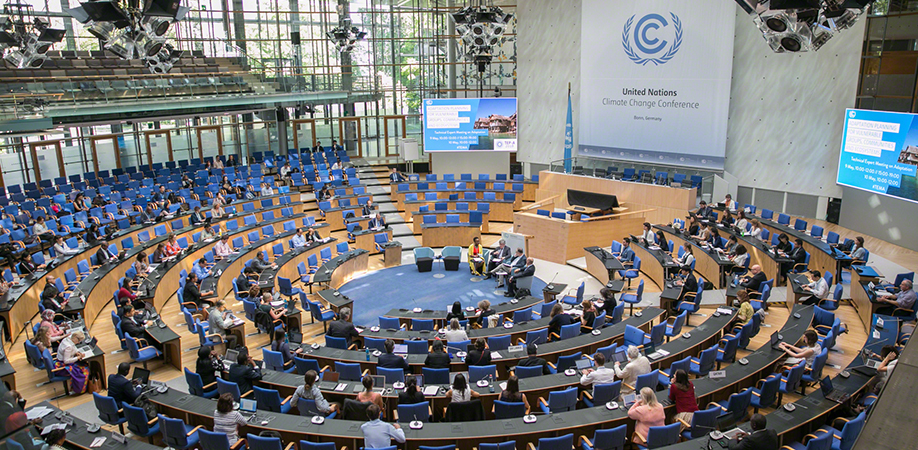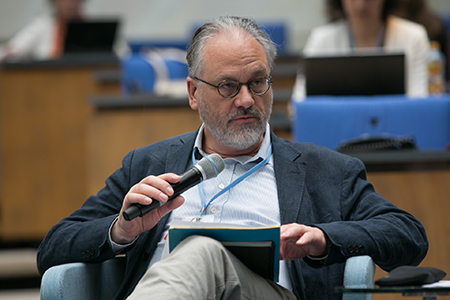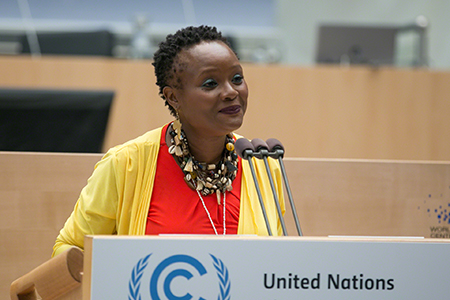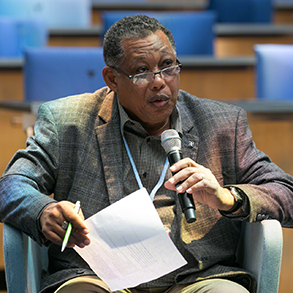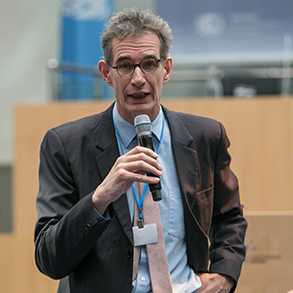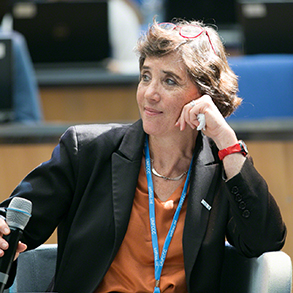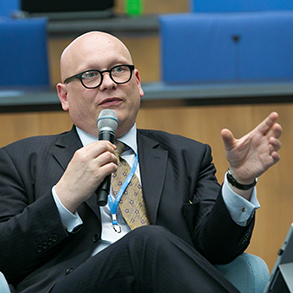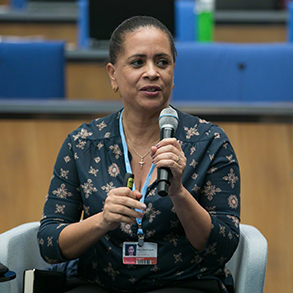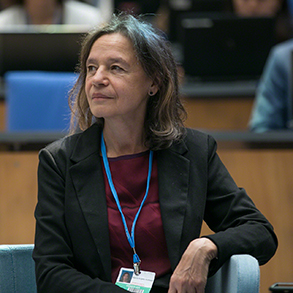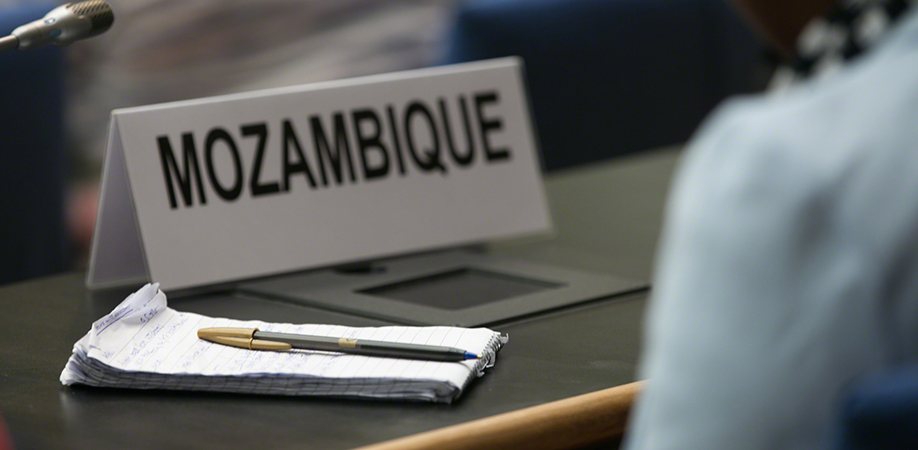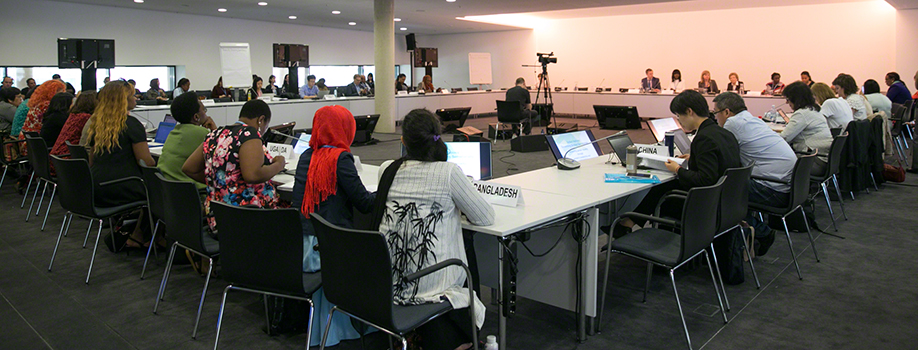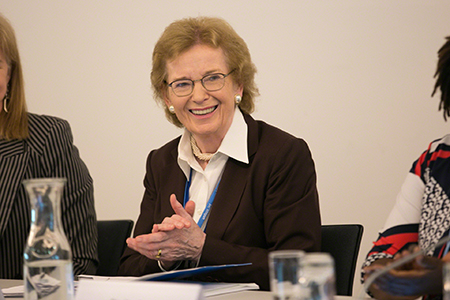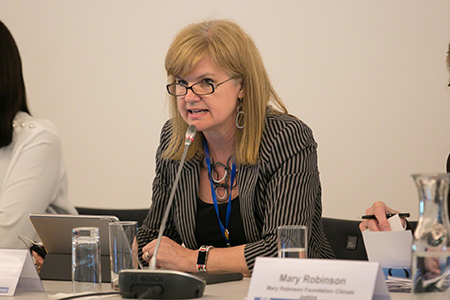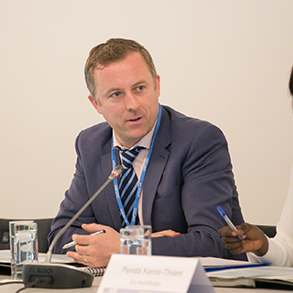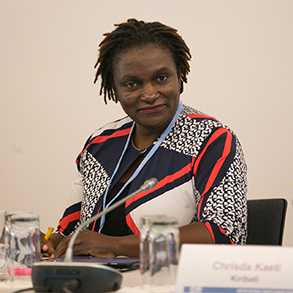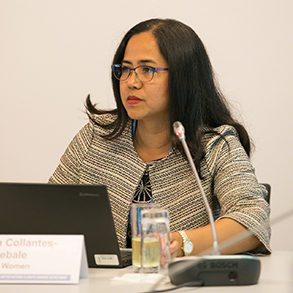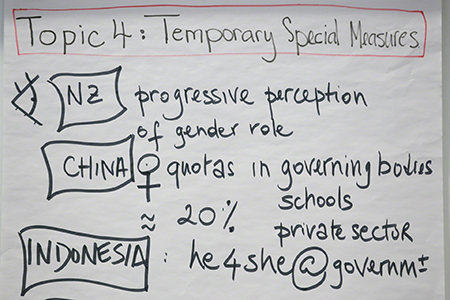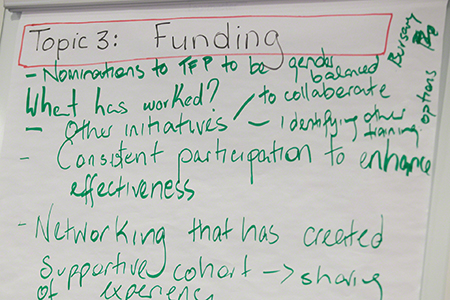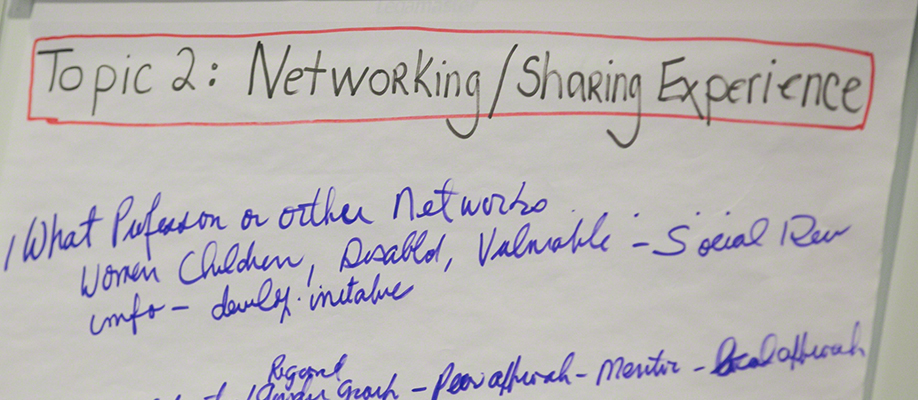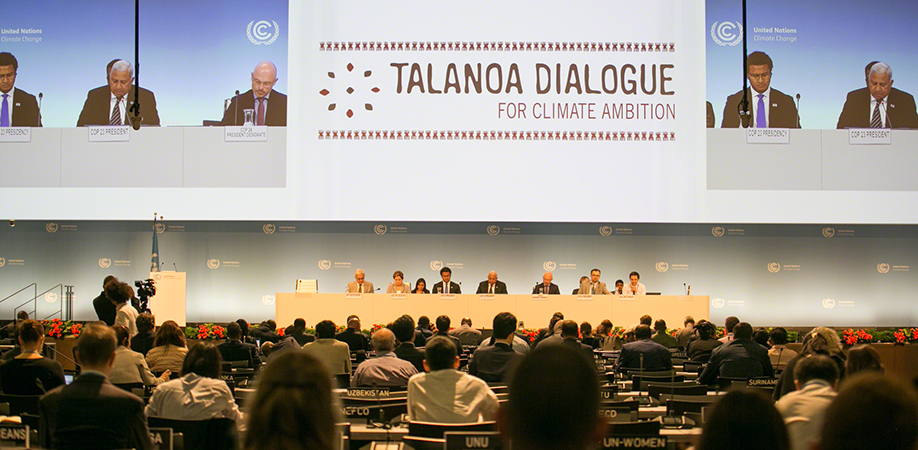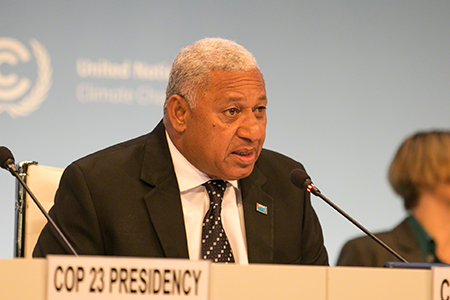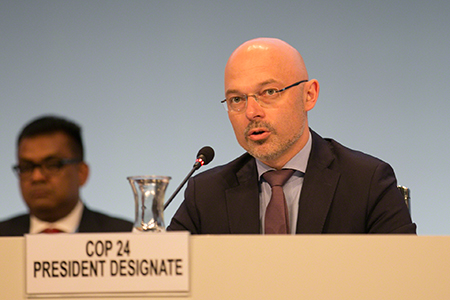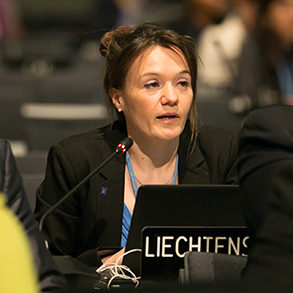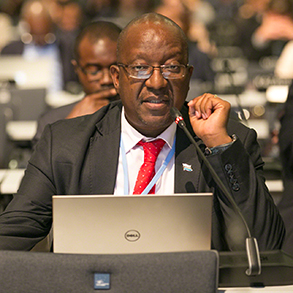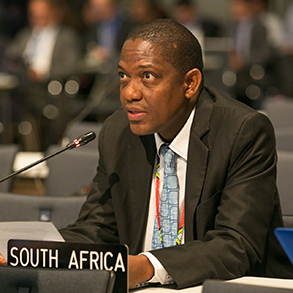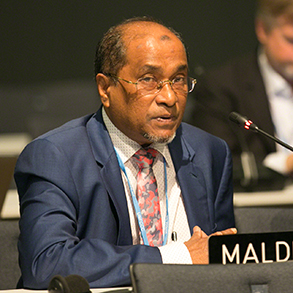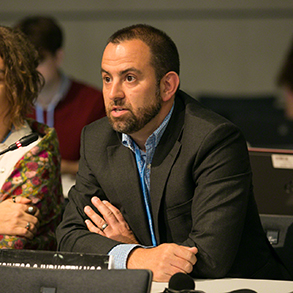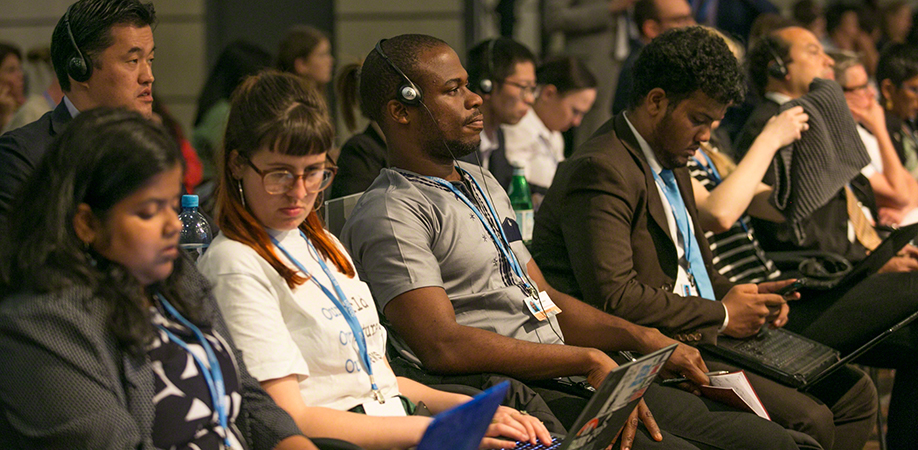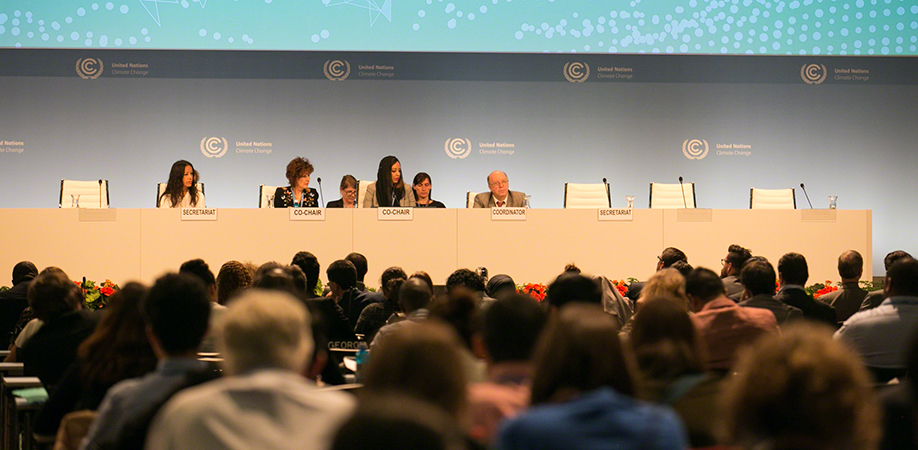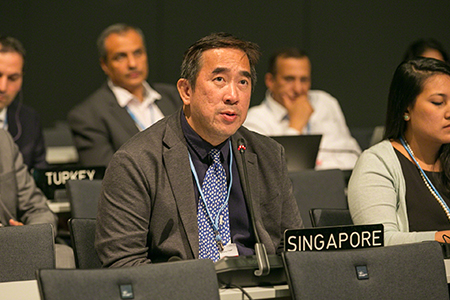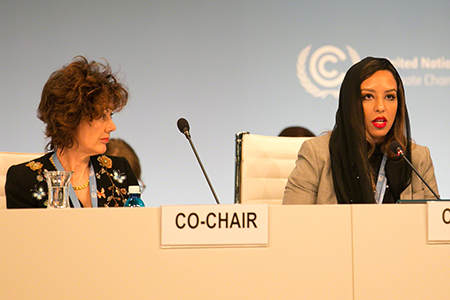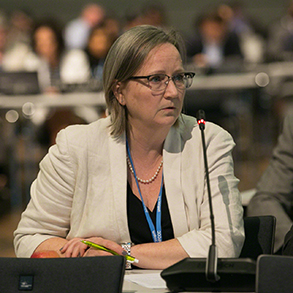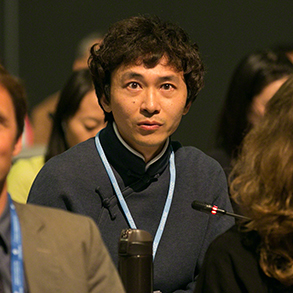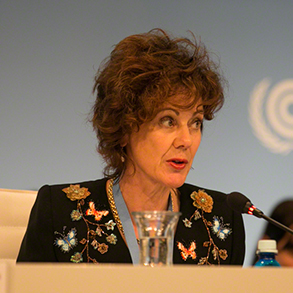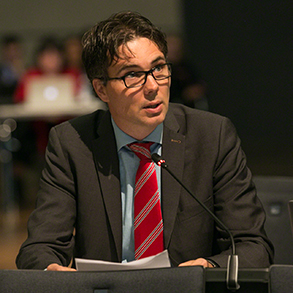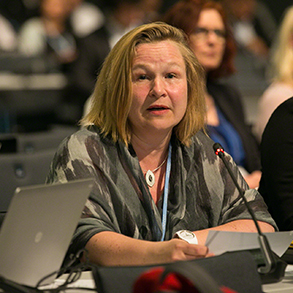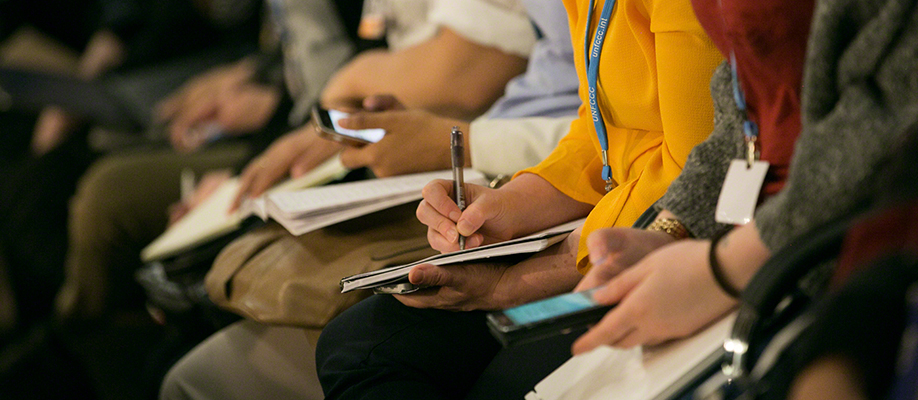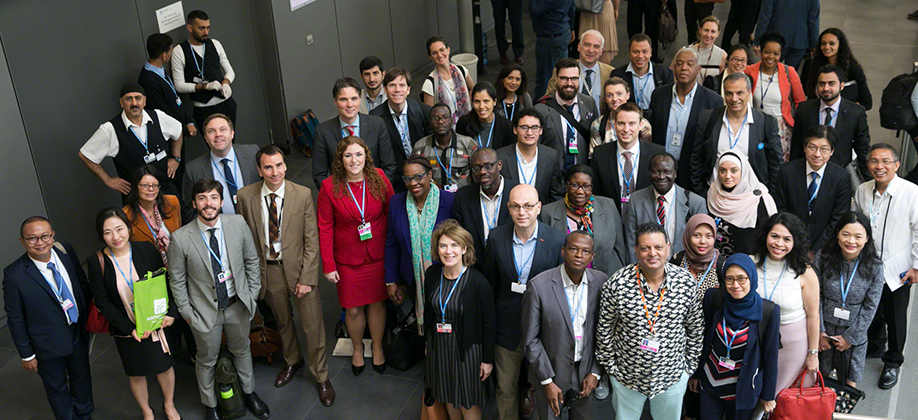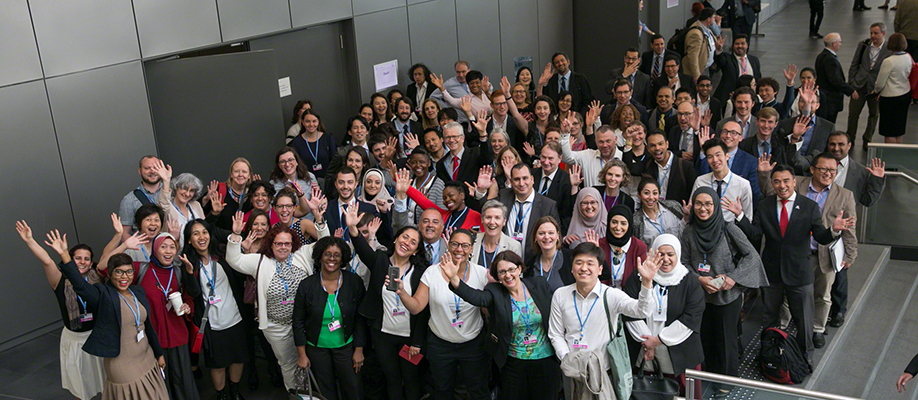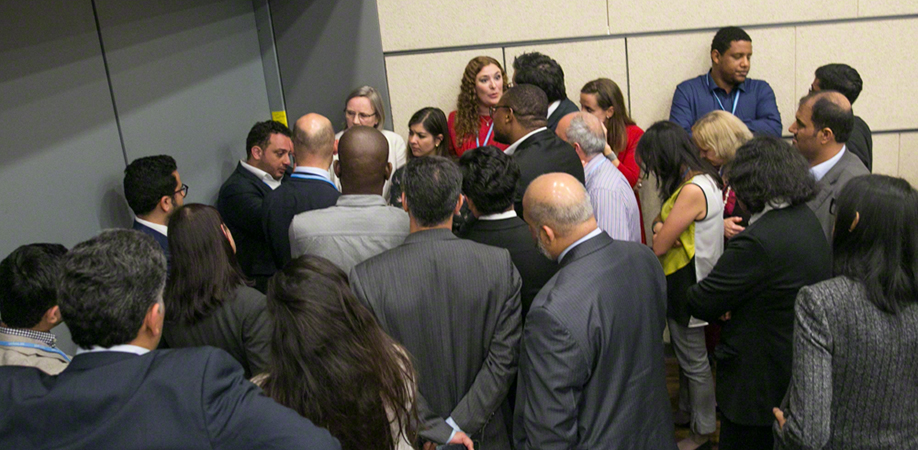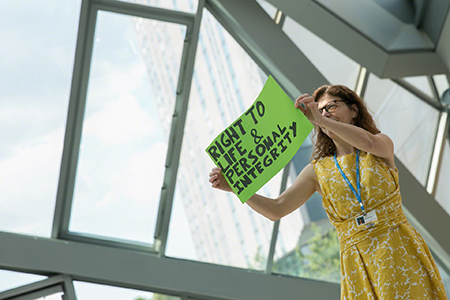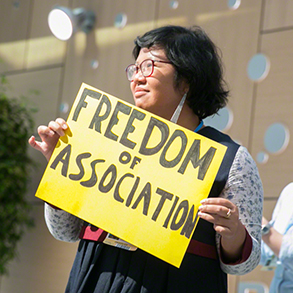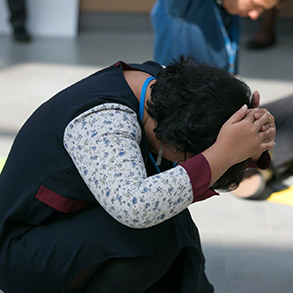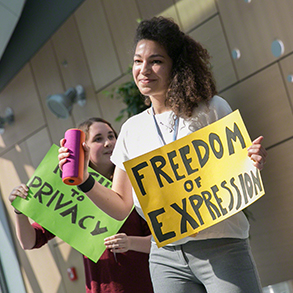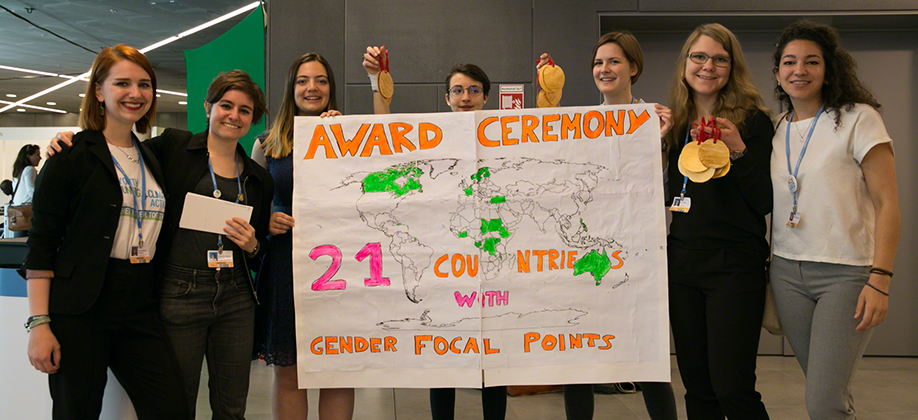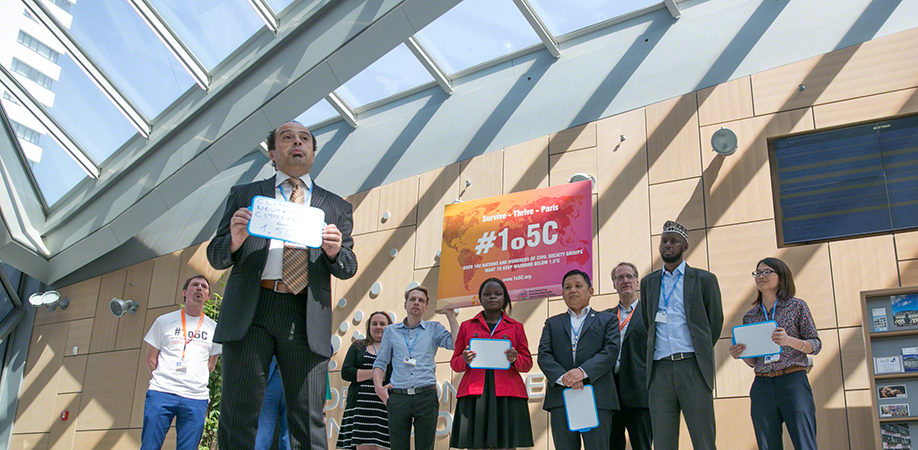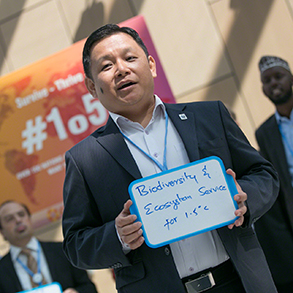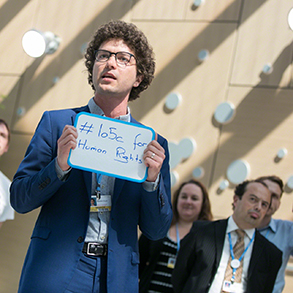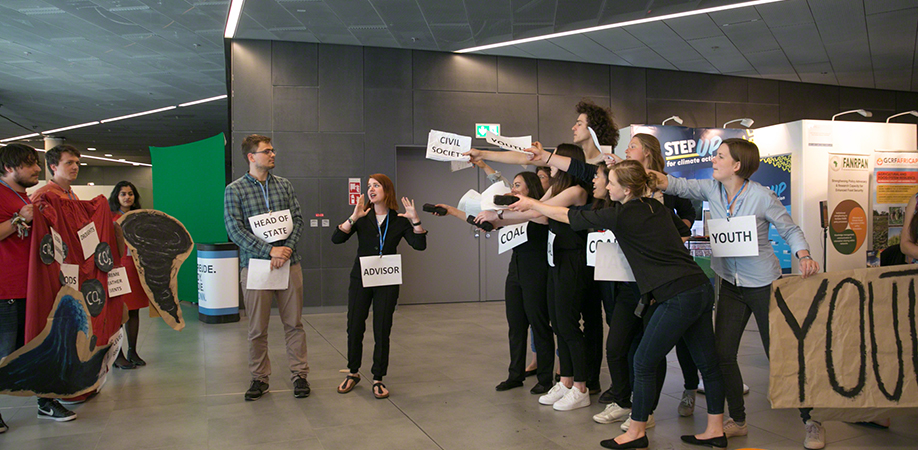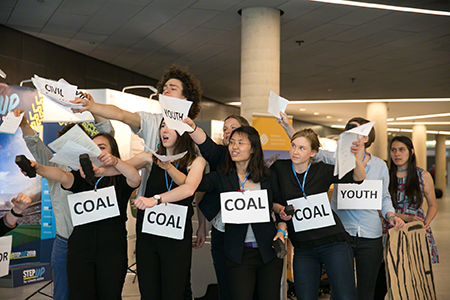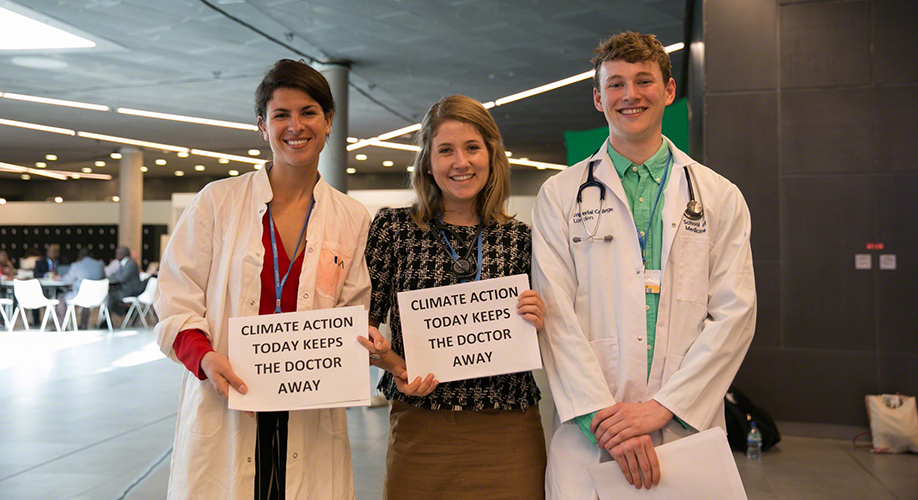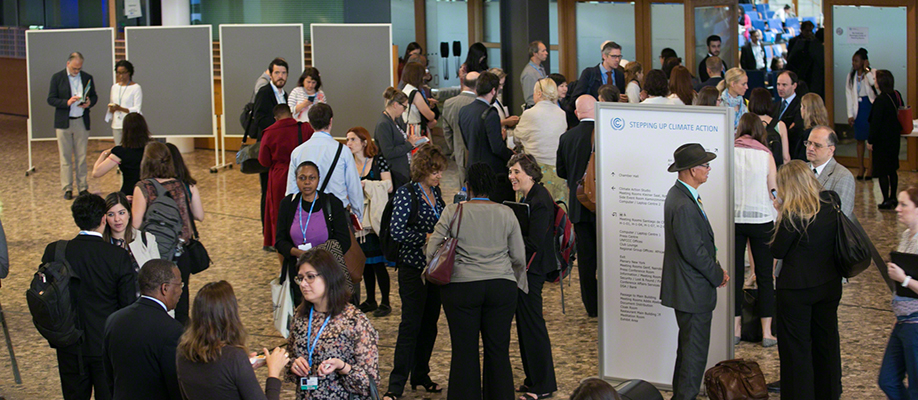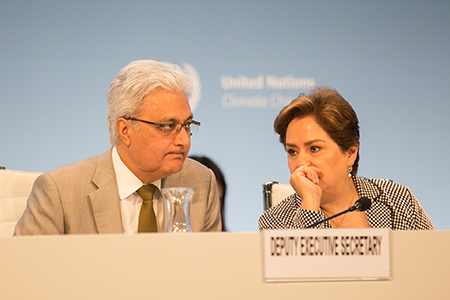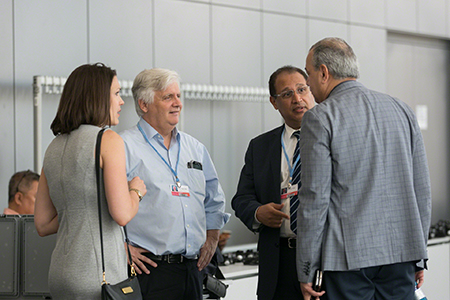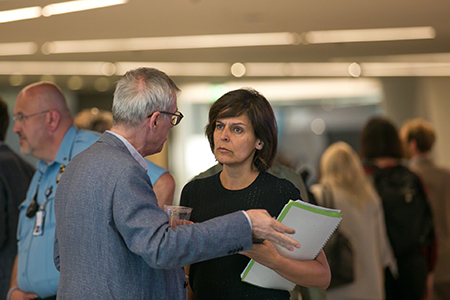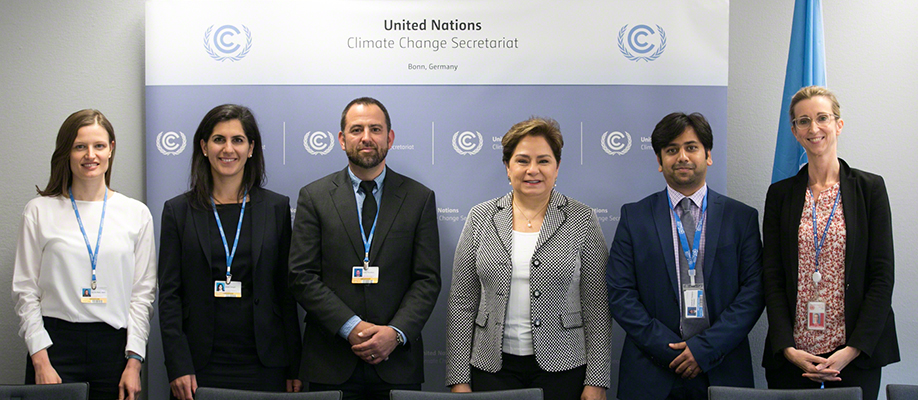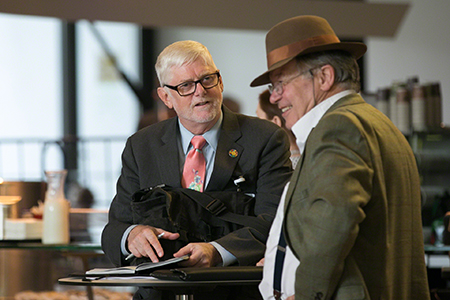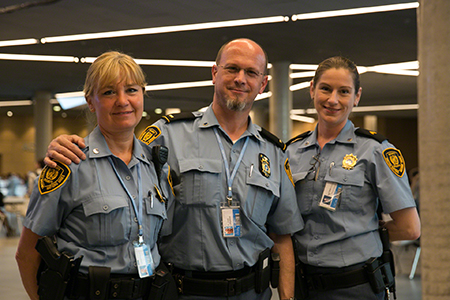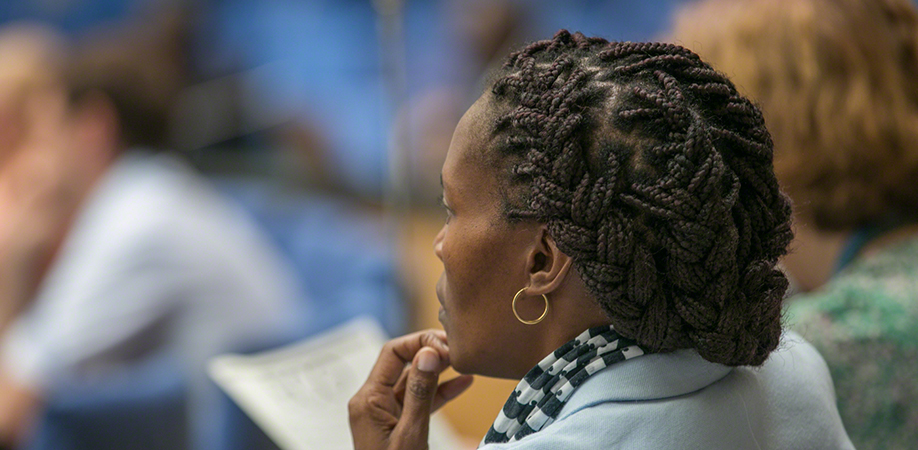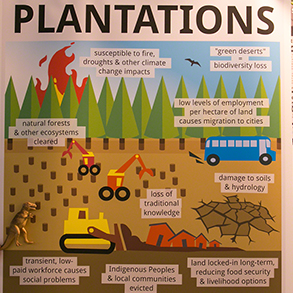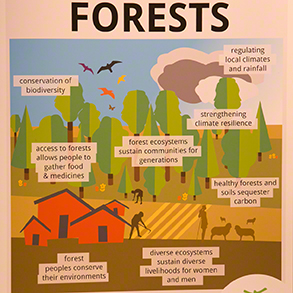Summary
At the Bonn Climate Change Conference, delegates worked to realize agreements on the second to last day. Negotiators concluded their consideration of several issues, while consideration of other issues, such as research and systemic observation and matters related to Article 6 of the Paris Agreement (cooperative approaches), continues.
To bring together the work related to several issues under the Paris Agreement Work Programme (PAWP), the Ad Hoc Working Group on the Paris Agreement (APA) convened a contact group. During this meeting, the APA Co-Chairs proposed a way forward, which parties deliberated, revised, and eventually agreed to.
The Technical Expert Meeting on Adaptation (TEM-A) met throughout the day to discuss adaptation planning for vulnerable groups, communities, and ecosystems. The sixth Dialogue on Action for Climate Empowerment (ACE) continued, focusing on public participation, public access to information, and international cooperation.
The meeting is scheduled to close on Thursday, with conclusions expected on many issues.
For extensive details on the day’s negotiations and to hear what delegates said in the corridors, see our daily Earth Negotiations Bulletin.
IISD Reporting Services, through its Earth Negotiations Bulletin (ENB) Meeting Coverage, provided daily digital coverage, daily reports, daily videos, and a summary and analysis report from the Bonn Climate Change Conference - April/May 2018. The summary and analysis report is now available in HTML and PDF.
Photos by IISD/ENB | Kiara Worth
For photo reprint permissions, please follow instructions at our Attribution Regulations for Meeting Photo Usage Page
Technical Expert Meeting on Adaptation 2018
Participants gather for the TEM-A
SBSTA Chair Paul Watkinson, France
Musonda Mumba, UN Environment Programme (UNEP)
Clifford Mahlung, Jamaica
Barney Dickson, UNEP World Conservation Monitoring Centre (UNEP-WCMC)
Valerie Kapos, UNEP-WCMC
Nicola Tollin, University of Southern Denmark
Diann Black-Layne, Antigua and Barbuda
Angela Andrade, International Union for Conservation of Nature (IUCN)
In-Session Workshop on Gender and Climate Change
Participants during the in-session workshop on gender and climate change
Mary Robinson, Mary Robinson Foundation - Climate Justice
Fleur Newman, UNFCCC Secretariat
Colin Hehir, Co-Facilitator
Stella Gama, Malawi
Verona Collantes-Lebale, UN Women
Participants brainstorm during break-out groups
Closing of the Talanoa Dialogue
View of the dais during the closing of the Talanoa Dialogue
Prime Minister Frank Bainimarama, and COP 23 President, Fiji
Incoming COP 24 President Michal Kurtyka, Poland
Heike Summer, Liechtenstein, speaking on behalf of the Environmental Integrity Group (EIG)
Balisi Justice Gopolang, Botswana, speaking on behalf of the African Group
Maesela Kekana, South Africa, speaking on behalf of Brazil, South Africa, India and China (BASIC)
Alberto Saldamando, Indigenous Peoples Organizations (IPO)
Abdullahi Majeed, Maldives, speaking on behalf of the Alliance of Small Island States (AOSIS)
Justin Perrettson, Business and Industry NGOs (BINGOs)
APA Contact Group
View of the dais during the APA contact group
Sin Liang Cheah, Singapore, Co-Facilitator for APA agenda item 3 - mitigation
APA Co-Chairs Jo Tyndall, New Zealand, and Sarah Baashan, Saudi Arabia
Beth Lavender, Canada, Co-Facilitator for APA agenda item 4 - adaptation communication
Xiang Gao, China, Co-Facilitator for APA agenda item 5 - transparency framework
Janine Coye-Felson, Belize, Co-Facilitator for APA agenda item 7 - committee to facilitate implementation and promote compliance
APA Co-Chair Jo Tyndall, New Zealand, and Co-Facilitator for agenda item 8 - other matters
Pieter Terpstra, the Netherlands, and Co-Facilitator for APA agenda item 8 - further matters, Adaptation Fund
Outi Honkatukia, Finland, and Co-Facilitator for APA agenda item 6 - global stocktake
Informal Consultations Throughout the Day
Family photo of APA agenda 8 - Adaptation Fund
Family photo of APA agenda item 5, transparency framework
Delegates huddle during informal consultations
SBSTA contact group on matters relating to Article 6 of the Paris Agreement
Civil Society Demonstrations
Members of civil society hold a demonstration to stress the importance of human rights and fundamental freedoms, including the rights to freedom of peaceful assembly, association, speech, and privacy in the context of digital technologies and multilateral processes. They highlighted the role and importance of civil society in the fight against climate change.
Civil society members recognize the 21 countries with gender focal points
Members of civil society and other non-party stakeholders call for urgent action to prevent average global warming from rising 1.5°C above pre-industrial levels
Members of civil society illustrate two pressing forces on negotiators: extreme weather events and fossil fuel lobbyists. The demonstrators called for more attention to be paid to civil society and for negotiators to accelerate climate action 'before it is too late.'
Members of civil society raise awareness about the health impacts of climate change, calling for urgent climate action
Around the Venue
Delegates gather at the start of the day
UNFCCC Executive Secretary Patricia Espinosa, confers with Ovais Sarmad, UNFCCC Deputy Executive Secretary
Prime Minister Frank Bainimarama, and COP 23 President, Fiji, with members of the COP 23 Presiency
Delegates from the US and Saudi Arabia
Marcela Main Sancha, Secretary to the COP and Andrei Marcu, Panama
Representatives of BINGOs meet with UNFCCC Executive Secretary Patricia Espinosa and members of the UNFCCC Secretariat
Carlos Fuller, Belize, speaks with delegates
Kimo Goree, International Institute for Sustainable Development (IISD) Vice-President, speaks with Benito Müller, Oxford Climate Policy
UN Security around the venue
Representatives of the International Network for Sustainable Energy (INFORSE)

